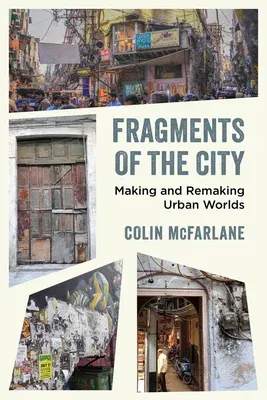Colin McFarlane
(Author)Fragments of the City: Making and Remaking Urban WorldsPaperback, 5 October 2021

Qty
1
Turbo
Ships in 2 - 3 days
Only 2 left
Free Delivery
Cash on Delivery
15 Days
Free Returns
Secure Checkout

Print Length
328 pages
Language
English
Publisher
University of California Press
Date Published
5 Oct 2021
ISBN-10
0520382242
ISBN-13
9780520382244
Description
Product Details
Author:
Book Format:
Paperback
Country of Origin:
US
Date Published:
5 October 2021
Dimensions:
22.61 x
15.01 x
2.39 cm
Genre:
Urban
ISBN-10:
0520382242
ISBN-13:
9780520382244
Language:
English
Pages:
328
Publisher:
Weight:
453.59 gm